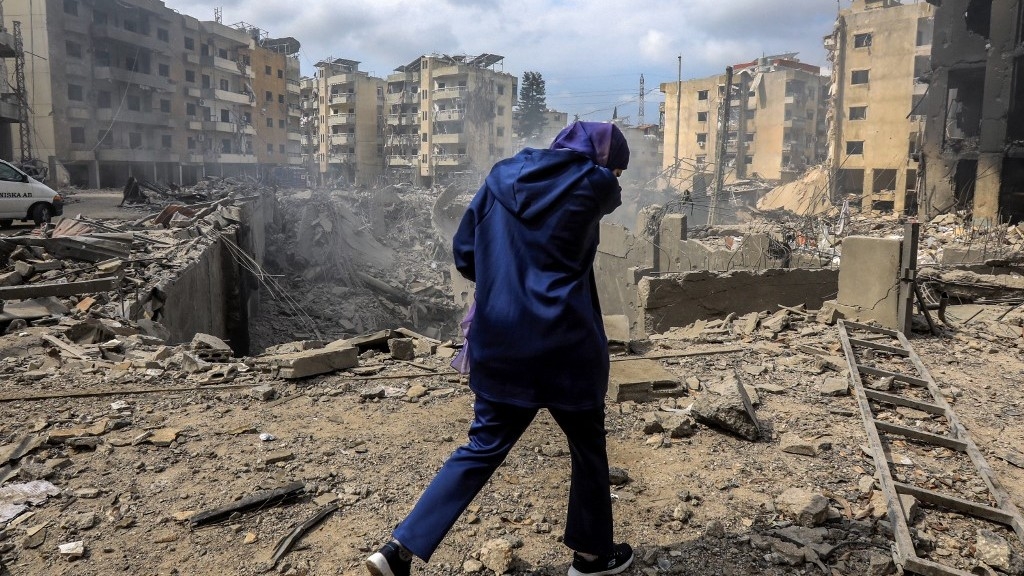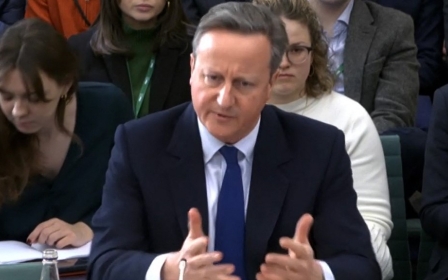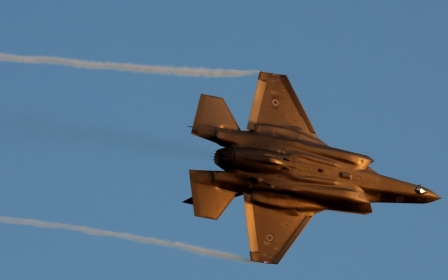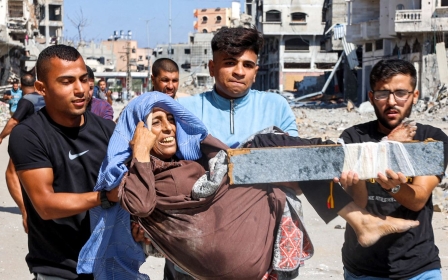UK Foreign Office won't say if Israeli military conduct in Lebanon under review

The UK Foreign Office has refused to say whether the Israeli military’s current conduct in Lebanon is being factored into assessments about its capability and commitment to comply with international humanitarian law.
Over the past month, Israeli military attacks in Lebanon, including a bombing campaign and ground invasion, have seen over 2,000 people killed and one million people - one-fifth of the population - displaced.
In the wake of the escalation, a group of British NGOs have called on the UK government to impose a total arms embargo on Israel, warning that UK-made weapons still being licensed for export directly or indirectly to Israel leave the government “complicit in atrocities”.
“We are gravely concerned by Israel’s escalated bombing and ground invasion of Lebanon and are redoubling our urgent call on the UK government to immediately half all arms transfers to Israel,” the groups, including War on Want, Oxfam and Amnesty International, said on Thursday.
They noted, in particular, their concern about the continued licensing of UK-made F-35 fighter jet components for indirect export to Israel.
New MEE newsletter: Jerusalem Dispatch
Sign up to get the latest insights and analysis on Israel-Palestine, alongside Turkey Unpacked and other MEE newsletters
UK-made parts make up 15 percent of every F-35. Arms control experts say that Israel has had to rely on the fighter jets to maintain the high volume of strikes conducted over the past year in Gaza and now in Lebanon.
Middle East Eye asked the Foreign Office whether Israel’s recent escalation in Lebanon was being considered in the ongoing international humanitarian law assessments of Israel which started a year ago, and whether its conduct had changed their outcome.

The assessments are critical as they are meant to inform the decisions of the foreign and business secretaries about whether to continue green-lighting arms exports.
A Foreign Office spokesperson did not answer MEE’s questions, but pointed to 30 arms export licences to Israel that the UK government suspended last month after a review showed there was a clear risk they might be used to commit or facilitate serious violations of international humanitarian law.
The spokesperson added: “The UK continues to support Israel’s right to self-defence in accordance with international law.”
The comments echo those made by Prime Minister Keir Starmer and Foreign Secretary David Lammy in parliament this week on the anniversary of the Hamas-led attacks on Israel.
Starmer said: “Banning all sales would mean none for defensive purposes. None for defensive purposes on the anniversary of October 7 and days after a huge attack by Iran into Israel would be a wrong position for this government and I will not take it.”
'Likely war crimes'
The NGOs contend that, over the past year, Israel has carried out a series of attacks that they say "likely constitute war crimes".
These incidents include the indiscriminate use of white phosphorus in populated areas, the deliberate targeting of journalists, the indiscriminate use of exploding pagers, and the targeting of vital civilian infrastructure.
Recent attacks on and around Beirut International Airport, which have forced its partial closure, have threatened the delivery of medical supplies and humanitarian assistance, they said.
The NGOs also raised concerns about Israel’s recent conduct in Gaza and the occupied West Bank, citing an air strike on a residential building last week in which 18 people were killed.
The bombing of the building, which housed a coffee shop in the crowded Tulkarem refugee camp, was the first time since the Second Intifada in the early 2000s that Israel had bombed the occupied West Bank using fighter jets.
The UN Human Rights Office strongly condemned the attack as unlawful.
Middle East Eye delivers independent and unrivalled coverage and analysis of the Middle East, North Africa and beyond. To learn more about republishing this content and the associated fees, please fill out this form. More about MEE can be found here.




